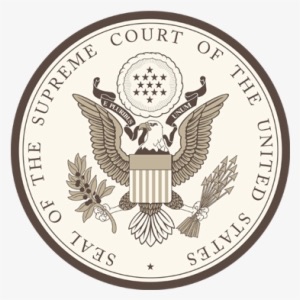
SCOTUS RELEASES A HISTORIC STATEMENT REGARDING THEIR CODE OF CONDUCT - IS IT ONE SMALL STEP FOR US?
The undersigned Justices are promulgating this Code of Conduct to set out succinctly and gather in one place the ethical rules and principles that guide the conduct of the Members of the Court. For the most part, these rules and principles are not new: The Court has long had the equivalent of common law ethics rules, that is, a body of rules derived from a variety of sources, including statutory provisions, the code that applies to other members of the federal judiciary, ethics advisory opinions issued by the Judicial Conference Committee on Codes of Conduct, and historic practice. The absence of a Code, however, has led in recent years to the misunderstanding that the Justices of this Court, unlike all other jurists in this country, regard themselves as unrestricted by any ethics rules. To dispel this misunderstanding, we are issuing this Code, which largely represents a codification of principles that we have long regarded as governing our conduct.
They will answer to no one but themselves, not #WeThePeople. SCOTUS ethics code comes after a series of revelations about undisclosed property deals and gifts intensified pressure on the justices to adopt one.
In a statement, the Supremes established the code of conduct “to set out succinctly and gather in one place the ethics rules and principles that guide the conduct of the members of the court.”
However, without any teeth, no one knows how these rules would be enforced, and the court said that it was still studying how any code would be put into effect.
- Federal judges have lots of legal requirements. The Supreme Court's new ethics code uses weaker words.
- The code of conduct unveiled Monday never uses "shall." It generally uses "should."
- That could be because there's no outside body with the power to hold the judges accountable
Is this the way a Democracy is going to work with three equal government branches? The Constitution of the United States divides the federal government into three branches: legislative, executive, and judicial.
For the first time in its 234-year history, the Supreme Court released a code of conduct governing the behavior of the country’s most powerful judges.
For months, ProPublica’s Supreme Court investigations have sparked discussions and outrage all over the country. Our first bombshell investigation in April detailed Justice Clarence Thomas’ decadeslong relationship with Republican megadonor Harlan Crow. Since then, #ProPublica and other news outlets have revealed a stream of undisclosed gifts to Thomas by a set of billionaire benefactors and a private jet flight provided to Justice Samuel Alito by a businessman who later had cases before the court. How the code will be enforced remains to be seen, but the magnitude of this step should not be understated.